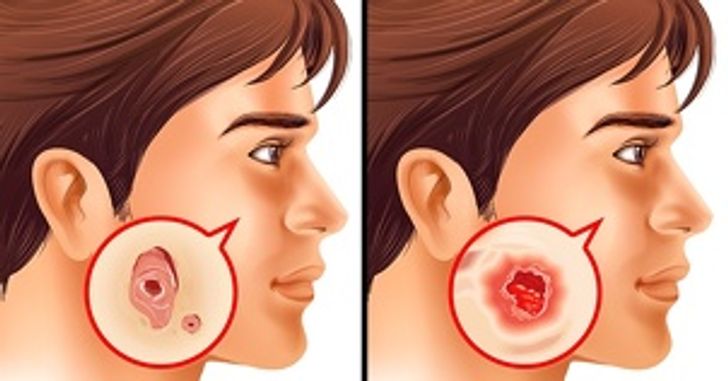Regardless of your age, it is always necessary to check that you are in good health. But it takes some effort to stay healthy, and part of that effort is getting the proper screening tests used to detect potential health problems while they are still treatable.
According to the National Center for Health Statistics, nearly 26% of people in the United States do not have a regular source of medical care.
We cares about our readers and that is exactly why we have compiled this list of tests that you should take sooner or later if you want to reduce your risk of certain diseases.
Skin Checks

According to the results of a study by the American Cancer Society, approximately 3.3 million Americans are diagnosed with skin cancer each year. To be safe, check yourself once a month starting at age 18. Tests performed by a medical professional are based on the patient’s risk factors.
These risk factors can include:
- significant sun exposure
- family history of skin cancer
- clear skin
- the presence of several unusual moles
- a history of various sunburns, especially in the early stages of life.
A board-certified dermatologist examines the skin of the entire body (including the scalp, genitals, and between the toes) and looks for suspicious growths, spots, or lesions.
Cholesterol Checks

Cholesterol is measured by a blood test, and your doctor may ask you not to eat for 9 to 12 hours beforehand. Generally, a cholesterol test measures your levels of total cholesterol, HDL (good) cholesterol, LDL (bad) cholesterol, and triglycerides.
A healthy total cholesterol goal should be less than 200 mg / dL. According to the American Heart Association (AHA), all adults over the age of 35 should have their cholesterol checked every 5 years. Screening tests should start in your 20s if you have certain risk factors, such as:
- diabetes
- smoke
- BMI over 30
- family history of stroke
- first-degree relatives who had heart attacks
Pelvic Exam And Pap Smear
All women over the age of 21 should have a pelvic exam or Pap test every 3 years. This test is done to look for signs of cervical cancer. The good news is that you probably no longer need a pelvic exam.
According to the American Cancer Society, in the last 50 years, the death rate from this disease has decreased by more than 74% thanks to a Pap smear.
Both tests look for changes in cells that may indicate the need for more tests, such as a biopsy, says Tasneem Bhatia, a board-certified physician who specializes in integrative medicine. She says, “If it’s cervical cancer, you’ll want to get it soon.”
Diabetes

All adults should be screened for diabetes at least twice a year, as they show no symptoms at a young age. But you should definitely get tested if you experience any of the first symptoms that sometimes occur, including:
- extreme thirst
- feeling tired all the time
- feeling very hungry even after eating
- blurry vision
- urinating more often than normal
- have wounds or cuts that don’t heal
Blood pressure above 135/80 mm Hg can be a symptom of diabetes. Diabetes tests may include a blood test for hemoglobin A1C, a fasting plasma glucose (FPG) test, or an oral glucose tolerance test (OGTT).
Hepatitis
Hepatitis refers to an inflammatory condition of the liver. It is usually caused by a viral infection, but there are other possible causes of hepatitis.
In many people, liver disease can be silent. If you don’t have symptoms, hepatitis C may be wearing down your immune system and can cause cirrhosis or liver cancer if left untreated.
According to the Centers for Disease Control and Prevention (CDC), approximately 4.4 million Americans are currently living with chronic hepatitis B or C. Many more people do not even know they have hepatitis.
There are 5 types of hepatitis, Hepatitis A, Hepatitis B, Hepatitis C, Hepatitis D and Hepatitis E.
You can get tested at least once a year.
As the experts say, “The greatest wealth is health”, so stay healthy and get checked at regular intervals. If you have any suggestions on what other tests and medical tests might be helpful for adults, please let us know and share your stories in the comments below.
Preview photo credit depositphotos, depositphotos, depositphotos



Interesting how a colonoscopy and endoscopy were not mentioned. These perhaps are two of the most important checks one can get.